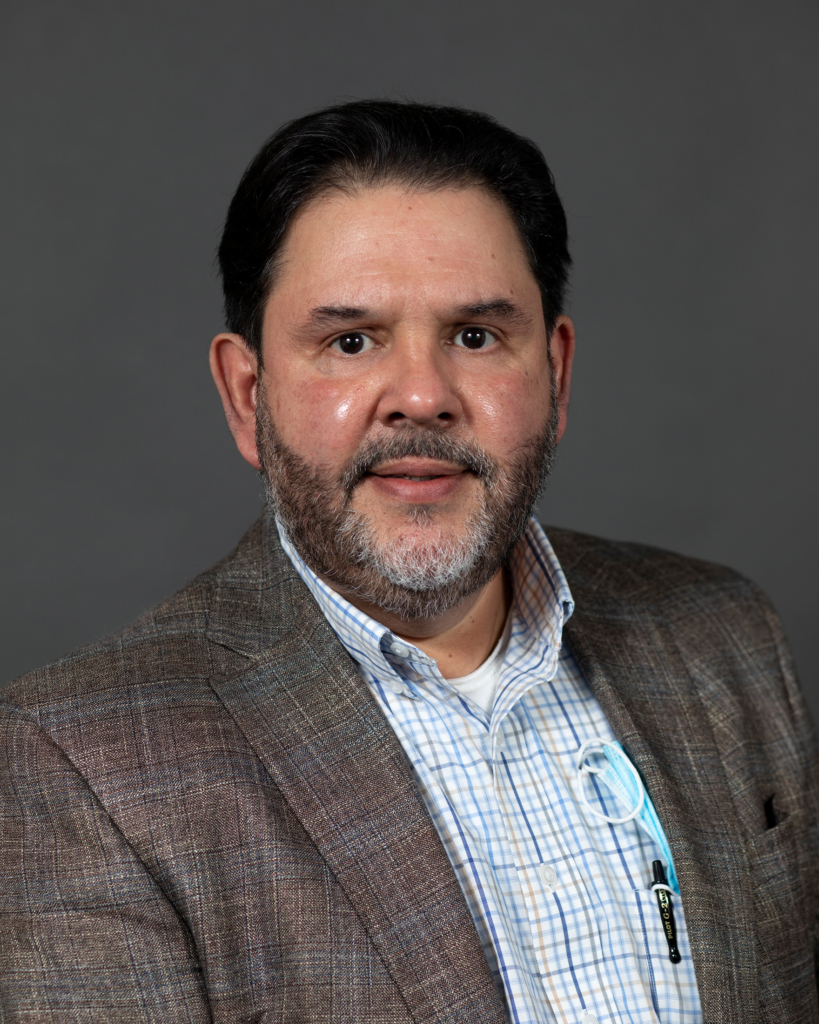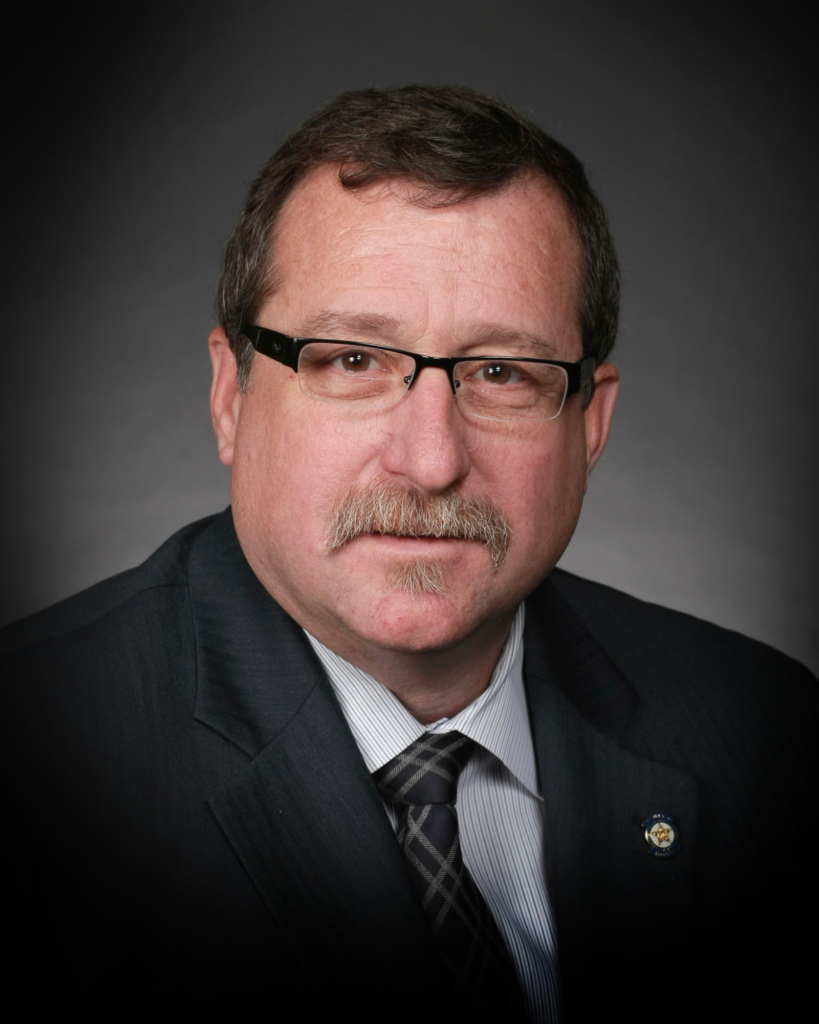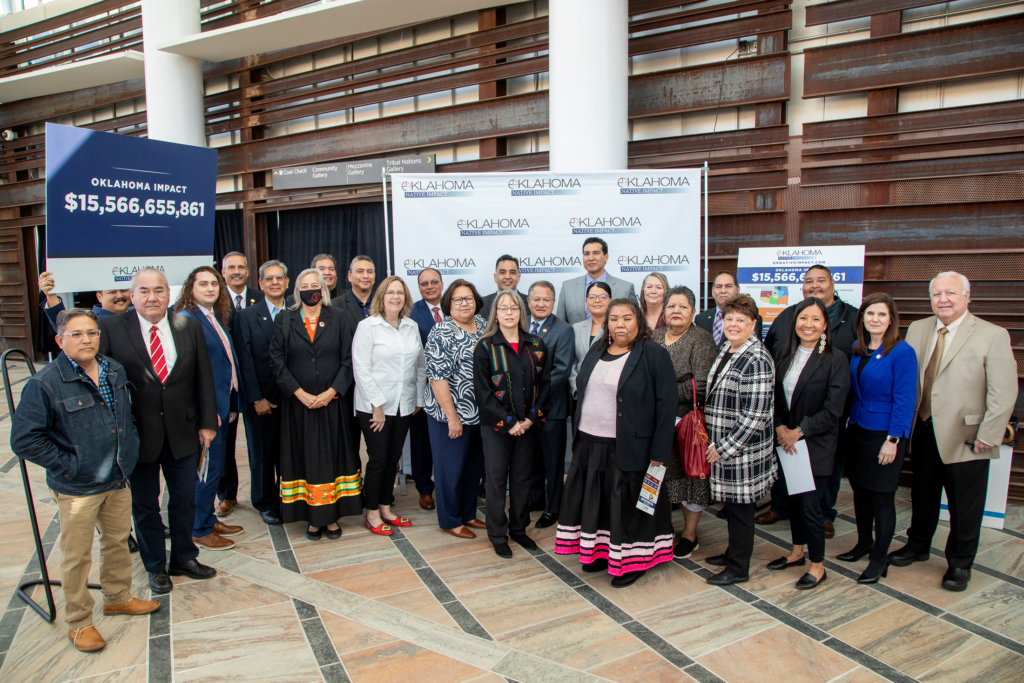This episode focuses on Behavioral Health Awareness Month and the societal stigma of having behavioral health issues. We also meet the only Citizen Potawatomi Nation member serving in the Oklahoma legislature and hear about a study on tribal economic impact in Oklahoma.
Reducing stigma in mental health treatment
One of the biggest obstacles when dealing with depression, anxiety, addiction or many other mental afflictions is stigma — the stigma of seeking help, getting treatment, attending support groups or openly discussing mental and emotional struggles. May is Mental Health Awareness Month, and Citizen Potawatomi Nation Communications Coordinator Mary Leaver spoke with Tribal Health Services Behavioral Health’s Dr. Julio Rojas about ways to overcome that judgement toward others and ourselves.

“When I’m sitting with a person, I know all the obstacles they had to overcome just to sit there in that moment. For some of them, it’s taken five or 10 years just to sit in that chair,” he said. “When I think about it from that perspective, I don’t want to miss the opportunity to talk about hope, to talk about healing, to talk about possibility.”
Find CPN Behavioral Health Services online at cpn.news/bh or by phone at 405-214-5101. Call the Substance Abuse and Mental Health Services Administration National Helpline at 1-800-662-HELP. That’s 1-800-662-4357.
Bourassa family descendant serves hometown, Potawatomi family as representative
Oklahoma State Representative Mark McBride is currently the only Citizen Potawatomi Nation tribal member elected to state congress. He represents District 53, which includes most of Moore and part of Norman – both south of Oklahoma City. He also serves as the chairman of the Education Appropriation Committee. We met in his office at the Oklahoma State Capitol to discuss his family history, work in the House of Representatives and hopes for achievements through the next couple of legislative sessions.

“I just had this urge to (run for office). It was kind of a weird thing. I had thought about it in my younger years, but I never saw a path. And I decided to run. Maybe it was a God thing. I don’t know. I decided to run and went and talked to 50 people that I knew and that I respected in the Moore area, and they all said, ‘Go for it,’” McBride said.
Find out more about his work in the Oklahoma House of Representatives at cpn.news/mcbride.
Oklahoma Tribal Finance Consortium announces tribes’ impact on Oklahoma’s economy
In mid-March, the Oklahoma Tribal Finance Consortium hosted tribal leaders and the public at the First Americans Museum in Oklahoma City to discuss findings from its most recent Oklahoma Native Economic Impact Study. Leaders from the Choctaw, Chickasaw and Muscogee Nations as well as the Wichita and Affiliated Tribes all spoke to a packed room about the effect of their efforts and employees on their nations and larger communities in rural Oklahoma.

“What magnifies that is the fact that Oklahoma Indian tribes are all rural, and we can’t leave,” said Citizen Potawatomi Nation Chairman John “Rocky” Barrett. “We can’t move. It’s fairly easy to make money in Oklahoma City and Tulsa; it’s real hard to make money in Wetumka, a lot harder to make it in Tecumseh. So the dollars that are made in rural Oklahoma and what keeps the rural economy alive in Oklahoma is the impact of tribal not only contributions and the impact of tribal services and the impact of tribal payroll. It’s not just commerce, all of that into communities that can’t afford to do that for themselves.”
See the full 2019 Oklahoma Native Impact Report at oknativeimpact.com.
Learning Language
It’s time for Learning Language, when the CPN Language Department joins us to teach vocabulary, songs, stories and more. In this segment, department director Justin Neely goes over some words that are useful for powwows.
For more information and opportunities with language, including self-paced classes, visit cpn.news/language. You can find an online dictionary at potawatomidictonary.com as well as videos on YouTube. There are also Potawatomi courses on the language-learning app Memrise.
Hownikan Podcast is produced and distributed by Citizen Potawatomi Nation’s Public Information Department. Subscribe to Hownikan Podcast on Apple Podcasts, Spotify, SoundCloud and wherever you find your favorite shows. Find digital editions of the Tribal newspaper here.
